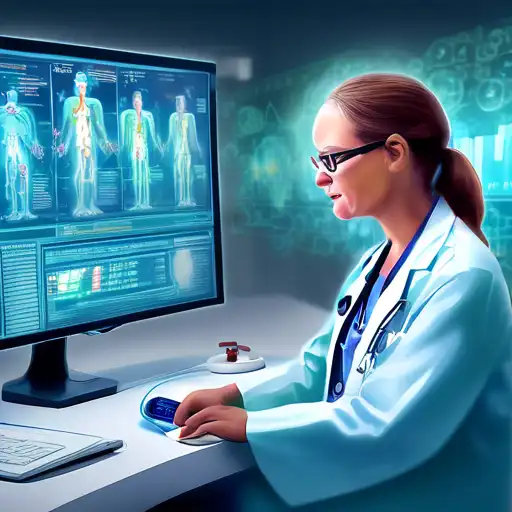Introduction to Big Data in Healthcare
In the modern era, the healthcare industry is undergoing a transformative shift, thanks to the advent of big data. By leveraging vast amounts of information, healthcare providers can now offer more personalized and effective treatments, significantly improving patient outcomes. This article explores the pivotal role of big data in revolutionizing healthcare.
The Impact of Big Data on Patient Care
Big data analytics enables healthcare professionals to analyze trends, predict outbreaks, and provide tailored treatments. For instance, by analyzing patient records and genetic information, doctors can now predict susceptibility to certain diseases and recommend preventive measures.
Personalized Medicine
One of the most significant benefits of big data in healthcare is the development of personalized medicine. By analyzing a patient's genetic makeup, lifestyle, and environmental factors, healthcare providers can create customized treatment plans that are far more effective than one-size-fits-all approaches.
Predictive Analytics
Predictive analytics, powered by big data, allows for the early identification of potential health issues before they become serious. This proactive approach can save lives and reduce healthcare costs by preventing hospital readmissions and unnecessary treatments.
Challenges and Solutions
Despite its benefits, the integration of big data into healthcare is not without challenges. Issues such as data privacy, security, and the need for skilled personnel to analyze and interpret data are significant hurdles. However, with the right policies and technologies, these challenges can be overcome.
Ensuring Data Privacy and Security
Protecting patient data is paramount. Healthcare organizations must implement robust cybersecurity measures and comply with regulations like HIPAA to ensure that patient information is secure.
Training and Education
To fully harness the power of big data, healthcare professionals need to be trained in data analytics. Investing in education and training programs can equip them with the necessary skills to utilize big data effectively.
Future Prospects
The future of big data in healthcare is bright. With advancements in AI and machine learning, the potential for improving patient outcomes is limitless. From wearable technology that monitors health in real-time to AI-driven diagnostic tools, big data is set to redefine healthcare.
Wearable Technology
Wearable devices collect vast amounts of health data, providing insights into a patient's health status and enabling timely interventions.
AI and Machine Learning
AI and machine learning algorithms can analyze complex datasets to identify patterns and predict health outcomes, offering unprecedented opportunities for preventive healthcare.
In conclusion, big data is transforming healthcare by enabling more personalized, efficient, and effective patient care. Despite the challenges, the benefits far outweigh the obstacles, promising a healthier future for all.
